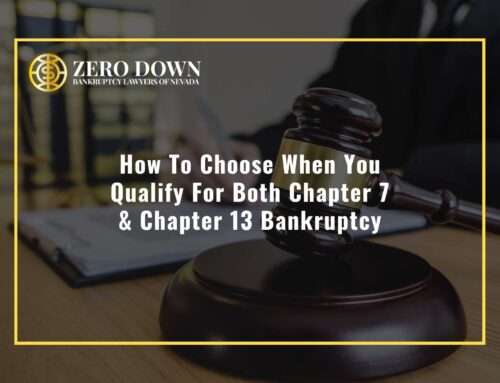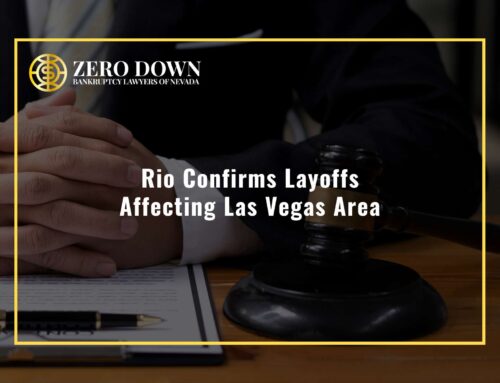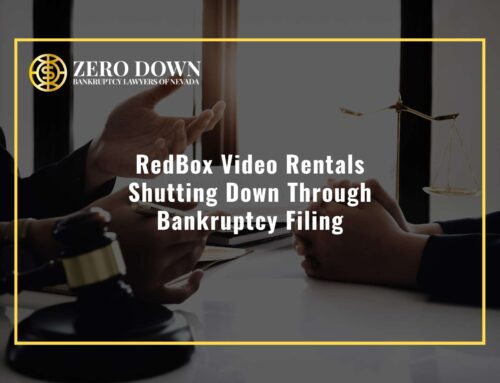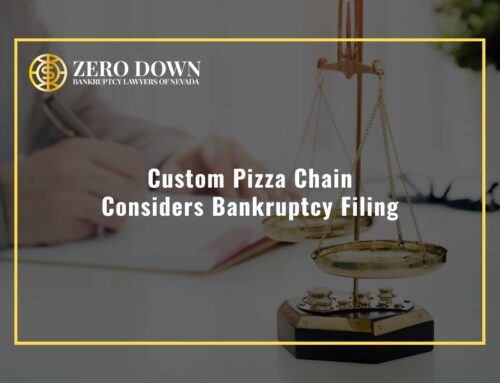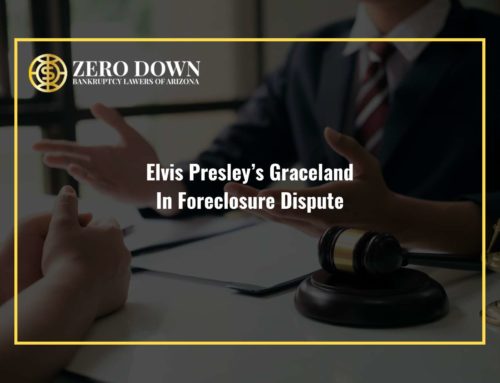What You Need To Do With Your Storage Unit If You File For Bankruptcy
Many people in Arizona have items in storage units. However, often when circumstances arise that you have to file bankruptcy, there are still fees owed to the storage company. In most cases, the bankruptcy exemption fees will cover your belongings in the storage unit. Therefore, your storage unit should not be auctioned off while your bankruptcy filing is happening.
Whether you unexpectedly acquire a large and valuable asset, move frequently, or simply don’t have space for all of your possessions, storage units can be an affordable way to make room for your belongings without buying more real estate. Some items in it may be expensive, while others hold only sentimental value. Regardless, the items have value to you.
Most likely, you may have seen television shows about what happens to storage units that are abandoned, but if you’re considering filing bankruptcy, you may be wondering what happens to storage units then. Our Arizona bankruptcy attorney team provides compassionate, expert representation at prices with payment plans that you can afford. If you have a storage unit and want to file bankruptcy, schedule your free consultation by calling 480-833-8000.
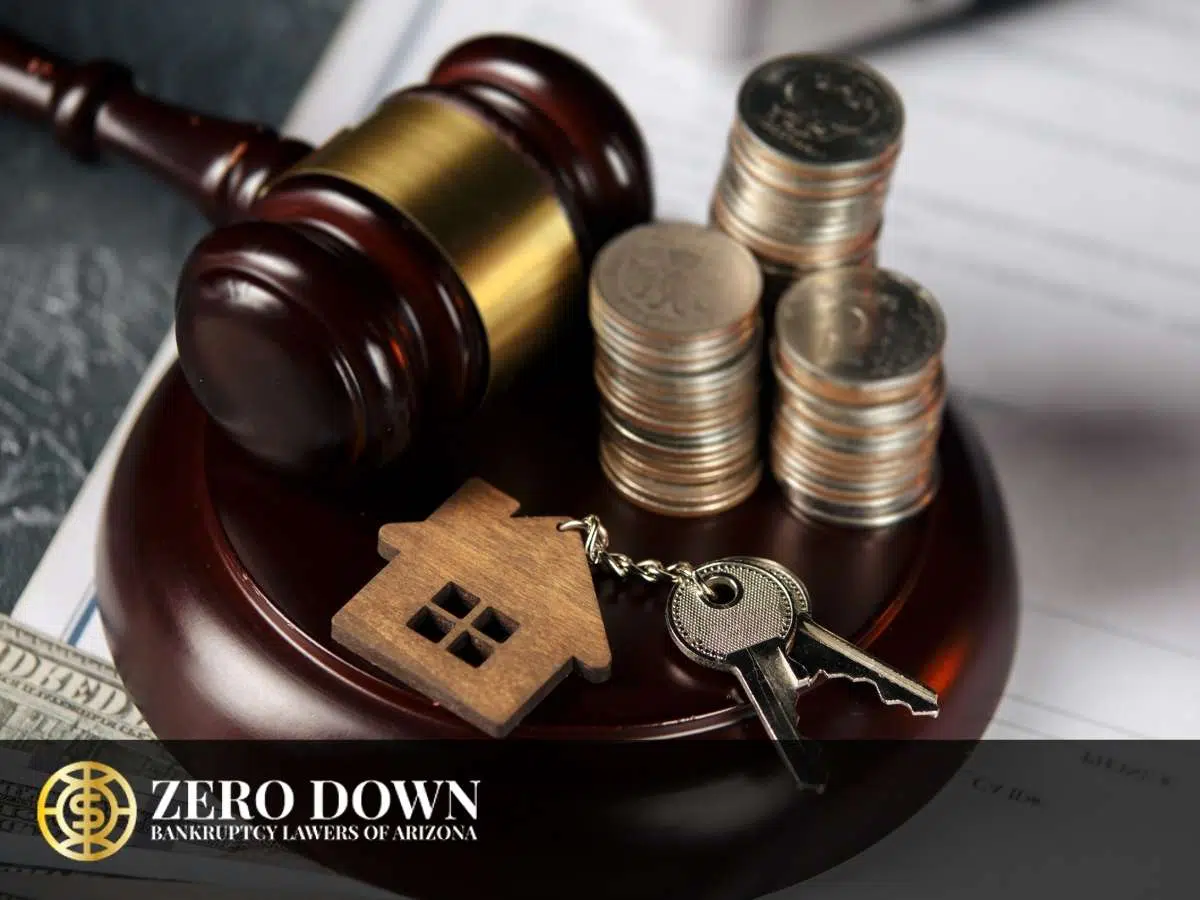
Will I Lose My Storage Unit & Its Contents If I File Chapter 7 Bankruptcy?
When you file Chapter 7 bankruptcy, any of your assets that aren’t protected by state exemptions may be seized and sold by the bankruptcy trustee. You need to list your storage unit, as well as all of its contents, in your bankruptcy petition. You also need to list all the household goods and furnishings in your current residence, as well as any other properties you own.
The Arizona exemption for household goods and furnishings is $6,000. While Arizona doesn’t have a wildcard exemption like some states, some miscellaneous items in your storage unit may qualify for exemptions besides household goods and furnishings.
Clothing, more formally referred to as “wearing apparel” in bankruptcy terms, has a bankruptcy exemption of $500 in Arizona. Up to $400 in musical instruments are protected in a Chapter 7 bankruptcy. The exemption for books and other published materials is $250. Tools and other equipment worth up to $5,000 are protected. A $1,000 exemption can be used towards a typewriter, computer, bicycle, sewing machine, family bible, burial plot, shotgun, rifle, or pistol. If you have an old vehicle in your storage unit, up to $6,000 equity is protected as an individual, or up to $12,000 as a married couple. Internet searches are usually sufficient to value items in a storage unit, but you may need to hire an appraiser if its contents are more valuable. For more information, contact our firm for your free consultation at 480-833-8000.
What If I Owe Storage Unit Rent?
If you have unpaid rental fees for your unit, this can present an issue when filing Chapter 7 bankruptcy. You will first need to determine whether you want to keep the storage unit or not. The automatic stay that goes into place once a bankruptcy petition is filed will stop many forms of creditor actions, including a storage unit auction.
A Chapter 7 bankruptcy typically lasts about 3-6 months, so you can try to pay off your balance in that time, if you wish to continue using the unit. If the storage unit company hasn’t put a lien on your unit yet, this balance is an unsecured debt that will be discharged, but you will need to move your items out of the unit. If the storage unit company has put a lien on your unit, it has become secured debt that won’t be discharged in a Chapter 7 bankruptcy. At this point, you can pay off the lien in a Chapter 13 payment plan, or risk your storage unit being sold at auction.
Chapter 13 bankruptcy, also known as a wage earner’s bankruptcy, creates a debt repayment plan that is based on your debts and your disposable monthly income. Your payment plan will last either 3 or 5 years, based on how your household income compares to Arizona’s median income for your number of household members. With limited exceptions, the bankruptcy automatic stay will protect you from your creditors, including your unit being sold at auction, for the duration of your payment plan.
What If I Forget To List Storage Unit Contents In My Bankruptcy Petition?
What most people don’t realize when they begin the bankruptcy process is that a typical bankruptcy petition is well over 50 pages long. That means over 50 pages of research, writing, and reviewing, potentially with creditors breathing down your neck. Especially if you represent yourself in your bankruptcy, it can be easy to forget details like your storage unit and its contents. Even an honest mistake can create unnecessary hassles in your case.
Some potential consequences you may face for omitting a storage unit from your bankruptcy petition include:
- Delays in your case.
- Extra paperwork and communication with your bankruptcy trustee.
- Trustee investigation into your storage unit and likely further review of the rest of your petition.
- Storage unit rent remaining after bankruptcy.
- Items from your storage unit being sold to pay your bankruptcy estate.
- A temporary dismissal of your case, which also would create extra bankruptcy costs and give the storage unit company a temporary opportunity to place a lien on your unit.
- Permanent dismissal of your case.
- Being charged with bankruptcy fraud, which is a felony that can result in fines and prison time.
Dot Your I’s & Cross Your T’s with a Seasoned Bankruptcy Attorney
Your storage unit and its contents is one of the innumerable details that must be fully described in your bankruptcy petition. And the consequences of screwing up this portion of your bankruptcy can be devastating. So what’s the number one way to make sure your bankruptcy proceeds smoothly? A bankruptcy attorney can help you apply exemptions and complete every section of your bankruptcy petition correctly.
Don’t believe us? The discharge vs. dismissal rates for self-represented vs. attorney-represented debtors prove our case. For Chapter 7 bankruptcy, approximately ⅓ of bankruptcy cases filed pro se, or when the debtors represented themselves, were dismissed. More than 90% of Chapter 7 bankruptcy cases filed with counsel are successfully discharged. While about 40% of attorney-represented Chapter 13 cases make it to discharge, more than 99% of Chapter 13 bankruptcy cases filed pro se end in dismissal. Clearly, hiring a competent bankruptcy attorney will dramatically increase your chances of a successful bankruptcy.
Find The Arizona Bankruptcy Attorney That Is Right For You
Finding the right bankruptcy attorney is easier said than done. Some bankruptcy firms will offer more service features than others. For example, you may want to look for an attorney who offers remote appointments and document uploads so that you don’t have to come into the office for every update in your case. Especially if you have a complex situation, you’ll want an attorney experienced in bankruptcy, rather than one who will take any type of case they can get. You may also find it easier to hire a bankruptcy attorney who offers payment plans.
At Zero Down Bankruptcy Lawyers, our bankruptcy team has been helping our clients discharge their debts through bankruptcy for several years. This specialized experience lets us offer top tier legal services with affordable attorney’s fees. Qualified clients can utilize our Zero Down Chapter 7 bankruptcy payment option.
Therefore, you pay for your bankruptcy case after your petition has been filed in low monthly installments for up to 12 months. Your initial consultation is absolutely free of charge. Clear debts and build a new, better credit history. Schedule your free consultation with one of our experienced Phoenix Bankruptcy Lawyers by using our online form or calling 480-833-8000.
Arizona Offices
Phoenix Location:
343 W Roosevelt Street, Suite #100
Phoenix, AZ 85003
Email: [email protected]
Phone: 602-609-7000
Mesa Location:
1731 West Baseline Rd., Suite 101
Mesa, AZ 85202
Email: [email protected]
Glendale Location:
20325 N 51st Avenue, Suite #134
Glendale, AZ 85308
Email: [email protected]
Tucson Location:
2 East Congress, Suite #900
Tucson, AZ 85701
Email: [email protected]


